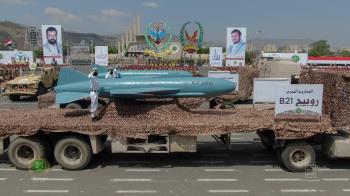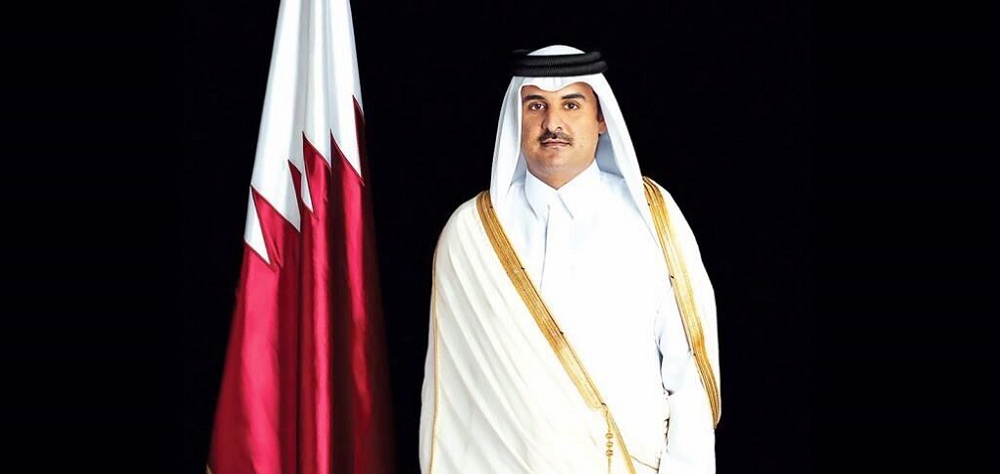Alwaght- 50 years after the foundation of Qatar, its Emir Sheikh Tamim bin Hamad Al Thani said on November 4 that the Persian Gulf emirate would hold elections for its advisory Shura Council in October 2021, suggesting that it would mark an important step towards strengthening the “advisory traditions of Qatar” and promoting legislation with massive participation of the citizens.
Qatar’s constitution, which was approved in a referendum held in 2003, asks the government to hold parliamentary elections to bring into work a parliament with the power to dismiss cabinet ministers, discuss and approve the public budget, and also pass laws and bills. According to the constitution, 30 out of the total 45 members of the Shura should get their seats through the general election and the remaining 15 should be appointed directly by the emir that has not materialized so far.
Presently, the emir appoints the ministers and the prime minister. The ministers respond directly to the emir who exercises power through them. Political parties are not allowed to act in the Arab monarchy.
Gradual and silent changes, public-government political compromises
Although the Qatari society has no mentionable history of political and social struggles or revolutionary tendencies towards democracy, the pro-reform calls in the society and politics in the small Arab nation have a long record. Inspired by the Arab nationalist waves in the Arab world caused by the Egypt of Gamal Abdel Naser, the Qataris in the summer of 1963 called for political and social reforms. One of the popular demands was the creation of a municipality council that would be elected by the Qatari men. Addressing the demand, the incumbent Emir Ahmad bin Ali made concessions to the protesting businesspeople. The council was created in the summer of the same year and lasted for four years.
In the next decades, there can be talk of a kind of compromise between the society and the government as the society no longer witnessed movements like those took shape in the 1960s. Only in January 1992, public demand was made by 50 elite figures of the country calling for the foundation of an advisory council with legislative powers. They also asked the emir for reforms in the economic and education systems. The demand was also included in the constitution in the next year as the government and the demanders reached a deal. In March 1999, elections were held to form advisory council that offered advice to the ministry of environment and municipal agriculture on construction.
Part of such compromises may be driven by some features of the Qatari society.
Qatar is a uniform state religiously and socially. Although there is a Shiite minority in the country, it accounts for only between 7 to 12 percent of the society. Just unlike Bahrain and the Eastern Province of Saudi Arabia, there is no dispute between the Sunnis and Shiites of Qatar. The Shiites of the country believe that the government treats them fairly. The Shiite preachers have no limitation in travel to Iran and some even continue their religious education in the holy city of Qom.
Qatar has no stateless people, like the Bedouin people in Kuwait, a group of people, along with some Shiites, lacking citizenship. The existence of minorities both in Bahrain and Kuwait causes political and social problems.
The original Qatari population is small, about 300,000, all with tribal roots. Most of them descend to a single tribal root, living for long years together. Such tribes as Al Atiyah, Al Masnad, Al Kawari, Al Muslim, Al Manaena, Al Sadah, Al Astah, Al Jassim, Al Naeemi, and the Shiite Baharnah, have tight and massive social bonds and are in peaceful coexistence.
There are no political parties in the country. The country has no record of the dispute between the right and left or organized militant Salafi groups. A small number of Arab nationalists, mainly supporters of Iraq’s Baathist party and ideology, and some Muslim Brotherhood groups are active socially but their influence in the public is trivial.
Qatar is a wealthy state and there are no class gaps, which are one of the factors behind the rise of political parties and struggles. Unemployment roughly makes no sense in this emirate.
Still, the government’s opposition to the formation of political parties should not be simply ignored. The ruling emir several times said that the political system in the country does not allow political party multitude, a stance similar to those held by most of the Arab dictators.
However, it should not be forgotten that the Qatari rulers have progressive political views compared to rulers in other Arab sheikhdoms. When Sheikh Hamad bin Khalifa Al Thani of Qatar assumed the rule in Qatar in a bloodless coup in 1995, he was considered as an avant-garde figure in the new generation of the Persian Gulf Arab rulers. Before he even became an official emir, Sheikh Hamad was prominent for his efforts for reforms and reduction of privileges to the royal family and senior officials.
When he assumed power, the emir revoked the ministry of information, demonstrating his intention to end the state censorship of the press. In November 1995, he decided to hold general elections that were shocking in the eyes of the other Persian Gulf Arab states. On April 29, 2003, the new constitution was put to a referendum and approved.
Despite its media-propagated pro-democratization tendency that is mainly promoted by the government-run powerful Aljazeera news network, the Qatari officials endorsed the deployment of Saudi troops to Bahrain to suppress the pro-reforms and democracy protests in the tiny Arab kingdom.
Also, in November and December 1998, the critical Al-Zaman paper, based in London, published a number of articles, attacking the reforms in Qatar and calling them “sham and superficial.” Also. There appeared documents that showed how Qatar censorship authority banned the Al-Zaman copy sales in Doha airport, demonstrating that there is still a kind of censorship tasked with screening the foreign press.
But it can be claimed that the society has come to terms with the above-mentioned reform process and that is why while the Arab uprisings shook other Arab countries like Bahrain, Qatar remained safe and faced no protests to use an iron fist like Saudi Arabia.
Role of foreign pressures on Doha
Along with the home developments, external requirements have had an influential role in the Qatari officials’ tendency towards reformatory steps. The signs of their care about presenting a bright image of the political system of the country can be seen in various aspects. Recently, women onboard Qatar Airways long flight airline were ordered to disembark a flight then subjected to an intimate medical examination after a newborn baby was found in a bathroom at Doha airport. The scandal pushed the government to refer the airport officials to the prosecutor general. The reaction comes as Qatar prepares to host the 2022 FIFA world cup and seeks to embellish as democratic its image in the foreign media.
From another aspect, while the neighbors blockading Qatar— Saudi Arabia, the UAE, Egypt, and Bahrain— claimed that Doha support for terrorism was their driver behind cutting off ties with it, Qatar needed to foil this Saudi-led propaganda campaign globally. Sheikh Tamim said that despite over three years of blockade, the Qatari nation can improve its position on the world stage. Naturally, one important factor in the improvement of Qatar’s position is shortening the distance between the home realities and the image Aljazeera wants to promote from the country.
This issue is also traceable in the reforms led by the previous emir. On June 13, 1997, when CNN asked Sheikh Hamad about if the country will have an elected parliament, he, despite being conservative in his response, said that it is possible but may take several years. One and a half years later, on November 16, 1998, he in a surprising statement said that he decided to replace the temporary constitution with a permanent one with a promise to form a democratically-elected parliament.
Of course, the foreign pressures, at least for increasing the women's role in politics, will increase on Doha by the US as the Democrats take the power in the White House.



























